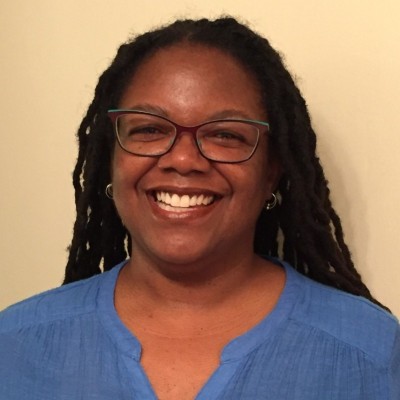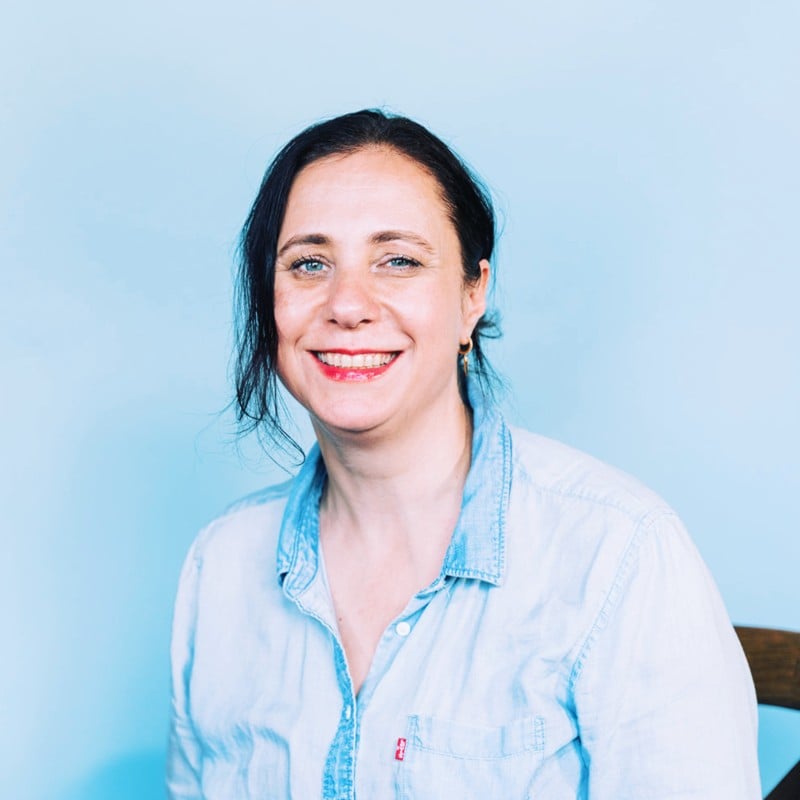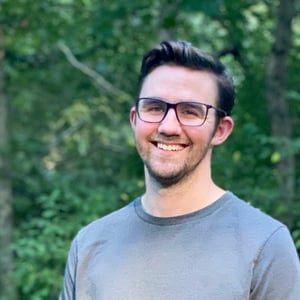Testimonials
Kind words from my past and present clients, readers, employees, and colleagues. Thanks everyone!

Colette Alexander
Senior Director Of Engineering
"My work with you has been truly transformative for me as a leader in my organization, and for my own career trajectory in general. I have more confidence in my abilities, and more grounded self-awareness about how I work best and what I need to support my own growth. I'm so grateful for the opportunity to work with you!"

Joy Dixon
Engineering Leader
"Lorem ipsum dolor sit amet, consectetur adipiscing elit. Aenean posuere imperdiet nisl eu sagittis. Aliquam hendrerit leo in ipsum sagittis tempor. Suspendisse suscipit sapien a eleifend laoreet. Quisque molestie, dui sed bibendum efficitur, massa magna sagittis est, sit amet posuere orci velit nec nulla."

Polina Grinbaum
Senior Software Engineering Manager
"Lorem ipsum dolor sit amet, consectetur adipiscing elit. Aenean posuere imperdiet nisl eu sagittis. Aliquam hendrerit leo in ipsum sagittis tempor."

Shwetha Thammaiah
Engineering Leader
"I am truly grateful for the opportunity to work with you. I have learned a lot from you and gained a new perspective through your gentle but firm coaching and guidance.
I want to thank you for the incredible impact and value you have added to my life, mindset, confidence and career growth. Thank you for setting me up for success, I feel a lot better with all of the effort and care you have put into helping me."

Matt Brems
Principal Data Scientist
"George helped me take my career to the next level despite struggling with ADHD and prioritizing effectively. Through our sessions, George understood the challenges specific to ADHD and provided both tangible and intangible tools to solve my problems. I eventually realized that intangible tools, such as gaining clarity on my core values, have had the biggest breakthroughs and value in my personal and professional growth."

Jamie Qaiyumi
Co-founder & CXO
"George is good at observing people and assessing what they may need to move forward without telling them directly what to do."

Aaron Snyder
Vice President of Engineering
"George has been instrumental in helping me find my voice as an executive. I’d recommend him to anyone who feels they need a trusted advisor to help them navigate a leadership role."

Amy Chantasirivisal
Director of Engineering
"Your newsletter this week was A+, spot-on for some stuff I'm helping one of my managers work through."

Simon Lepkin
Executive Coach
"George is an excellent resource on technical leadership. I've referenced his articles numerous times (here's one of my favorites).
He's been a role model for me as I develop my own coaching practice, and his blog featured prominently on my vision board."
Vickie Taylor
Licensed Clinical Social Worker
"What surprised me the most: how much more I was able to accomplish with George's guidance, and how I started applying what I learned to other areas of my life!"
Fred Cirera
Tech Industry Veteran
"George is my goto guy every time I get stuck, he has a fantastic capacity to understand and synthesize complex ideas."
Brent Williams
Chief Information Security Officer
"George is comfortable initiating difficult conversations, and facing issues that others may avoid or find uncomfortable."
Steven Hernandez
Director of Information Security
"What sets George apart from others is that he has a vision. He is able to imagine potential solutions to problems that have not been solved, or even defined before."
Daniel Gleason
Technical Lead
"One of George's greatest skills is his ability to listen to the true issues behind what is said."
Case Studies
At a crossroads in life and career
Colette Alexander
Senior Director of Engineering
What was going on in your professional or personal life when you made the decision to work with me? What challenges were you facing?
When I decided to get coaching sessions, I was at a crossroads in my life and career. I felt there was a lot on the line for me, professionally, when it came to the decisions I was going to make in the next few months. I also had a lot of feelings about those decisions and the state of my life, and knew I needed a safe place to reflect on them and understand how they could help guide my decision making in a healthy, conscious way instead of a controlling, unconscious way. I was also facing lots of change at work, and helping my team through a lot of change. Those specific changes made it necessary for me to grapple with long-standing beliefs that I had about myself and my ability to perform well in certain environments.
What else did you try to overcome your challenges before you worked with me? What happened?
I have a lot of experience self-coaching - reading books, reaching out to others for perspective, and even trying to touch on "work stuff" in psychological therapy sessions. Each of these is valuable and helpful, but nothing could really match the effectiveness of having a great coach who understands the tech business as a mirror and guide.
What made you choose to work with me to overcome these challenges? How did my coaching services stand out?
George has a presence on Rands' Leadership Slack that I really appreciate. I've watched him coach folks in real time over there and have always felt that he had a great coaching skillset. I appreciate that he offers not just traditional sessions but also slack and email availability so that it's really a comprehensive support plan - not just 1 hour a week. I also think that George has a great balance of practicality and reflection in his coaching style. Some coaches reside in intellectual reflection or practical plan-making, but George is able to understand what a particular situation calls for and match his style to those needs.
What has been the biggest breakthrough you’ve experienced while working with me?
I've been able to practice empathetic reflection on my own values and behaviors and understand them so that I have a better sense of how to work with them. As a result of this, my ability to be effective but also strengthen relationships, especially with higher level executives has increased.
What has been your favorite thing about working with me so far?
You manage to keep a great balance between coaching through self-reflection and more philosophically oriented discussions and questions versus practical troubleshooting and guidance. Helping draw connections between these two worlds is really helpful and creates more tangible outcomes from the work we do together that are visible in my day-to-day work life.
How would you describe my coaching service to someone else?
Self-reflection-as-a-service. I think the biggest value that coaching delivers is the ability to create time and space to self-reflect, but your specific skills combine that reflection with values and principles and provides a set of tools that people can learn to use and generate value in their work over time.
Would you recommend my coaching to a friend? If so, can you explain why?
Absolutely. I think anyone who has goals at work, or feels blocked in some way can benefit. I especially think it's important for people in mid-to-higher levels of management to invest in coaching with you - I've found that we tend to experience less formal help from our own bosses, and I think you provide a wonderful mix of growth and practical tips for anyone who feels unsupported in their current position.
What else would you add?
I think my work with you has been truly transformative for me as a leader in my organization, and for my own career trajectory in general. I have more confidence in my abilities, and more grounded self-awareness about how I work best and what I need to support my own growth. I'm so grateful for the opportunity to work with you!
Emotional Rollercoaster to a Confident Executive
Addison S.
VP of Engineering
After Addison cried in front of his company’s founders for the second time, he knew something had to change.
He has been with the company for several years at that point, growing from a founding engineer to a VP of Engineering. He built the engineering organization from scratch, and made numerous contributions across many areas of the company. He had a strong sense of ownership, and he was proud of what he had accomplished.
But as the company kept growing, he felt increasingly stretched beyond his capacity. Yet when founders suggested delegating some of his responsibilities, he felt like they were losing trust in him and his ability to do his job.
When Addison approached me, he was unsure about his future at the company. He believed the founders wanted him out.
At the same time, he was stressed about the lack of clarity about his founders' expectations, and his ability to meet those expectations. He was also worried about his prospects to find a comparable role if he did indeed get fired.
The stress was getting to Addison. On one occasion, he ended up yelling at his manager-one of the founders, and the CTO of the company. On two other occasions, he broke down crying in front of the founders.
Addison was seeing a psychotherapist, but he felt like he needed additional help with:
- regulating his emotions and dealing with stress at work,
- communicating with his founders productively,
- navigating conflicting situations calmly,
- advocating for himself, and
- setting healthy boundaries.
Using my training in ACT and MBCT, and my experience as a Mindfulness Coach, I focused on helping Addison to:
- accept his feelings as appropriate responses to stressful situations and avoid taking things personally,
- engage with conflicting situations with curiosity, listen mindfully, and prioritize understanding,
- find activities outside of work to help complete the stress cycle in a healthy manner,
- set healthy boundaries by focusing on his needs and communicating them non-confrontationally.
The first step was to help Addison stop avoiding and denying his feelings. “I have to learn to suppress my feelings. Crying in front of my manager is not good for my career”, said Addison. To which I responded, “Have you ever noticed how sometimes the harder you’re trying to ignore something, the stronger and more insistently it comes back?”
We also talked about emotional compression and how it almost always leads to depression, and that the way to unravel the emotional compression is to give yourself permission to feel all the feelings again-the happy and the sad ones, equally.
Next, we spent a session talking about completing the stress cycle. How our bodies evolved to deal with life threatening stress in a certain way, like running away from a predator, shivering, and so on. And how in the modern world, even though most of us no longer face life or death situations, our bodies still respond the same way to stress at work. But we no longer complete the stress cycle by running away, shivering, or playing dead. So the stress accumulates and eventually leads to more serious problems. During the same conversation we also brainstormed some ways Addison can cope with stress outside of work and Addison committed to going for a short hike every day.
Towards the end of our engagement, we spent some time discussing nonviolent communication. Both towards ourselves and with others. One of the key concerns for Addison was to learn to communicate with the founders in a more productive way and to set healthy boundaries with them. So we role-played a few scenarios using the principles of nonviolent communication as well as talked about how to communicate your needs to others without making it about them, without judgment, or shame.
After two months of intensive sessions, Addison re-connected with the founders, and they came to a mutual understanding about his role at the company. He found a more sustainable way to work, and delegated some of his old responsibilities to lighten his load. Eventually he was given new responsibilities that allowed him to grow and become an even more competent executive.
From Conflict to Clarity
Blake S.
VP of Engineering
When Blake’s startup was acquired by a larger company, he found himself facing an impossible choice: stay in a role he no longer found satisfying and fight for his team or look for a better fit elsewhere and abandon his team.
There were significant differences between the modern engineering stack and practices of his team and the legacy practices of the acquiring company. The new leadership was seemingly uninterested in integrating the modern stack into their infrastructure. And instead of working on his team’s roadmap, Blake was stuck in meetings arguing with the new leadership about which database his team should be using.
Worse yet, according to Blake, the new leadership was seemingly operating under a drastically different set of values and he felt like his role was no longer a good fit for him.
Blake reached out to me to help him decide whether to:
- stay and fight for his team and their more modern engineering practices, or
- abandon his engineers and find another job that better aligned with his values.
Blake did not believe he could achieve both goals. He felt he had to choose between staying in a role that no longer suited him to support his engineers and abandoning his former employees. He was paralyzed by this difficult choice.
My strategy with Blake was to help him:
- see whether it was truly an either-or situation,
- connect with the new leadership and better understand their needs and goals for the acquisition,
- together with the new leadership, develop a clear and mutually beneficial plan for integrating his team,
- get more clarity on his values and, if they were truly misaligned, work out a plan for his graceful departure.
The first step was to help Blake explore his either-or thinking, so I said, “I just want to explore something, would you be open to that? What if it was possible to both help your team keep their modern tools and continue using their modern processes AND find a better fitting role for you elsewhere? What might that look like?” And we spent some time brainstorming ideas. In the course of brainstorming we discovered that Blake didn’t necessarily have to prepare the path for his team. There was somebody on his team who was excited about the opportunities the larger company was giving them and they just needed some help with skills that would enable them to support the team after Blake’s departure.
Next, we talked about Nonviolent Communication and how it might help Blake to connect with the new leadership and not only better understand their needs, but also make them feel heard and understood. Which in turn might create more openness on their part towards adopting the more efficient ways of building software that Blake’s team already had a lot of experience with.
This turned out to be the key element. Blake quickly internalized the ideas of nonviolent communication and was able to work out a plan with the new leadership for integrating his team into the large company in a way that was mutually beneficial.
Lastly, using a process I developed, we spent about two weeks exploring and understanding Blake’s core values and whether they are truly misaligned with the new leadership’s values.
In the end Blake decided that he wanted to look for another opportunity. And he felt like his team was well positioned to succeed without him.


